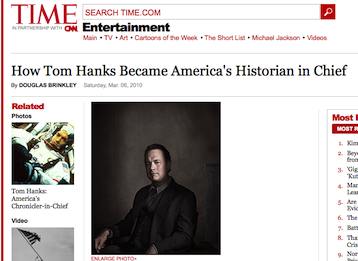May 8, 2010
China Needs Fewer TVs, Or A Billion Of Them

I'm just as surprised as you, but at least I'm drunk
I.
Reread Part 1. What's happened since?
II.
Studies have apparently shown that soap operas shown in developing countries introduce/reinforce progressive values like female empowerment, education, equality, with very real effects on the society (e.g. birth rates are lower, girls stay in school longer, etc.)
From a news article entitled, "How soap operas could save the world":
"The evidence we have from these academic studies is that quite often [soap opera viewers in developing countries] take away different attitudes toward things like how many children they want, what is acceptable behavior for a husband toward his wife, what is the breakdown in a household of responsibilities over things like finances, should we be sending girls to school," says Charles Kenny, an economist at the World Bank.
Soaps are particularly powerful because they attract so many devoted viewers. But other shows have similar effects. Charles Kenny wrote more extensively about this in Foreign Policy:
When a woman reached the final five [of Afghan Idol] this year, the director suggested "it would do more for women's rights than all the millions of dollars we have spent on public service announcements for women's rights on TV."Ok. But what did it change in women, exactly?
III.
1. How fast does the culture change due to TV? Probably only by a half-generation. Tick tock.
2a. If this effect is real, is it conscious and deliberate on the part of TV execs? Are interested parties creating shows to influence the culture (as opposed to simply selling product?)
2b. If this effect is real, why don't special interests (the government, the Christian Coalition, GLAAD, whatever) just give money to established Hollywood producers and say, "can you make cannibalism ok?" or "Please rewrite history or me." Works for Spielberg. So?

Certainly everyone loves to complain that TV is destroying society, why not get together and use TV to push the agenda you want?
Maybe they don't themselves know how real this effect is? Or maybe they don't want to. Maybe Spielberg doesn't want to change the world, just be thought of as the guy who wanted to.
IV.
You'll observe that the article's title isn't "How soap operas alter the world" it's "How soap operas could save the world"-- so it's a good thing, then? I know the result here was that women wanted empowerment, but it could just as easily have gone the other way. Why would a soap promote only the positive values of empowerment but not promote the negatively sexy ones such as showering with your boss and recording it?
This is from the Museum of Broadcast Communications article on soaps, specifically 1960s medical soaps:
The therapeutic orientation of medical soaps also provided an excellent rationale for introducing a host of contemporary, sometimes controversial social issuesYay progress. But here's the sentence immediately preceding it:
Their popularity also spawned the sub-genre of the medical soap, in which the hospital replaces the home as the locus of action... the biological family is replaced or paralleled by the professional family as the structuring basis for the show's community of characters.
Not to mention our own personal community of characters. Eventually even those get replaced with TV families. Why else would there be an all new episode of Brothers and Sisters this Mother's Day?
V.
If you're still trying to figure out whether the studies show that TV violence causes real violence or TV progressivism causes real progressivism, you're approaching the question the wrong way. Those are accidental outcomes influenced not by the content of the shows, but the way TV makes you look at things.
And that way of looking a things is-- get ready-- narcissism. TV makes you look at things not starting from the thing, but starting from yourself. No third world village woman looks at a soap and thinks, "I wish women had the right to freely choose their own husbands." They look at it and say, "I wish I could choose my husband freely." It looks like a positive value, but that part's an accident. If you look closely, TV has only made her ask what she would like for herself. It promotes of the right to self-identify. You can argue whether that's good or bad, but the argument has to be about that.
VI.
Soap operas were stylistically different from other shows because they were open ended, unlike the neatly wrapped episodic dramas and sitcoms. They are also shot in quasi-real time. If a character says something dramatic and the show cuts away to another scene/subplot, when they return they will pick up exactly at the moment of the character's last words. You are hand-held through every step of the emotional processing. It's impossible to apply the full force your prejudices to a social problem, e.g. abortion, when the show never gives you a moment to do so. You are carried through the entirety of the process through the character's life.
Soaps are also directed as a theater (opera) production, conscious of the audience's placement relative to the stage. Characters never turn their back on the camera; they'll turn their back on the other character (e.g. both facing outwards, towards the audience) and argue in a way no one ever does.
It's a stage effect: it pulls the viewer into their lives. You're in there, day after day, part of the action, part of the drama-- which they guide you through. No closed ended show can be as powerful.
It's hard to appreciate how unusual that was, because nowadays most TV dramas are run like soap operas: Sex & The City, Grey's Anatomy, Brothers and Sisters etc. That's what makes these shows so much more culturally influential than porn. Or church. If I was going to L. Ron Hubbard a religion, I would take Sunday services, and serialize them. Tune in next week.
VII.
TV doesn't just influence those who watch it, it's enough simply to be aware of TV:
Barely five percent of the TVs that are on at that time are tuned to Gossip Girl; in other words, very few people watch it. Yet there isn't anyone who doesn't know about it, even if it's imagined based on magazine covers or ads. So the existence of a menage a trois episode mainstreams it for people who don't watch the show, and that's actually more powerful a cultural influence. i.e. If you're a fan of the show, the threesome is specific: those three people are doing it. For everyone else not watching, it becomes background noise: "oh, people are having threesomes nowadays..."
This is why it is true that even if you are not interested in pop culture, pop culture is interested in you.
VIII.
Let's say I forbid my daughter or son to ever watch TV. What happens? Is she at a disadvantage because she is slightly less familiar with the rhythm of her social group? Will he be mystified by the seemingly contradictory desires in his female classmates? Will they both be frustrated and anxious at how everyone interprets social and political events using the exact same phrases, none of which they know?
IX.
Those of you expecting the rise of the Chinese Dragon and the collapse of the American Eagle are all going to die, along with your grandkids, way before that ever happens. Plan accordingly.
When Charles Kenny says TV is promoting values, what he means is western values. Right? As long as America controls the horizontal and the vertical, western values-- or whatever CBS decides those are-- will be exported and fetishized. Accompanying those will be a interpretive framework built on narcissism. It is inevitable. You'll see Chinese women disdainfully rolling their eyes about American frivolity and arrogance even as they dab dry their Cosmopolitan splashed Hermes clutches and wonder why they are single in a nation infested with Y chromosomes. "The last guy I dated didn't even want to want to sex me anymore, let alone get a real job. Do I need to move to fucking Australia?"
Take a breath, Wildman, have a drink, the caps lock is on the left and I'm not going anywhere. Let me ask you more immediate question: not everyone in China has a TV. What do you call it when part of a population becomes exponentially and suddenly more western while another part doesn't at all?
I'll save you the Google search: the answer is Iran.
Tell Sally Fields a happy mother's day from me when you see her tomorrow. I'm glad to hear she's doing good.
---
http://twitter.com/thelastpsych
34 Comments